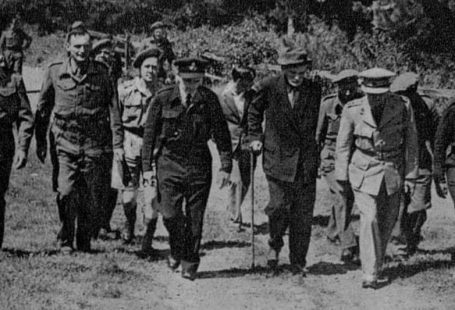This week at The Archive we are delighted to have added 115 years’ worth of historic headlines, with two brand new titles joining us over the past seven days. In total, we have added 103,686 new pages, with substantial updates to one of our national titles. Read on to discover more about this week’s additions.
Register now and explore the Archive
Kicking off our new titles this week is the Runcorn Weekly News. Published in the Cheshire town of Runcorn, this ‘politically independent’ publication appeared every Friday. Priced at one penny, and covering headlines from the industrial town and port of Runcorn, it also featured news from nearby Widnes.
Runcorn Weekly News | 19 January 1961
Our other brand new title this week is the Clare Freeman and Ennis Gazette. Joining our collection of Irish newspapers, the Clare Freeman and Ennis Gazette was published in the historic market town of Ennis, the county town of County Clare. Founded in 1853, it appeared every Saturday and contained local, national and international news, with a section dedicated to local births, marriages and deaths.
‘Circulating extensively in Clare, Limerick, Galway and generally through the South and West,’ the Clare Freeman and Ennis Gazette ran for just over thirty years, ceasing publication in 1884.
Clare Freeman and Ennis Gazette | 21 February 1880
We turn now to our updated titles this week, beginning with the Evening Mail. This intriguing title owes its existence to one of Britain’s most famous newspapers, namely The Times. The Times was founded in 1785 as The Daily Universal Register by publisher John Walter, but John Walter also founded another newspaper in 1789, which was the Evening Mail.
Appearing three times a week, the Solicitor’s Journal of 1865 records how ‘Every particle of the matter printed in the Evening Mail consisted of issues of The Times.’ Indeed, the Evening News was an unashamed reprinting of the more famous newspaper, only including new material if there had been any breaking headlines during the day of its publication.
By 1921 the Evening Mail appeared once a week on a Wednesday, and sold itself as ‘reproduction of the substance of The Times, published weekly for the foreign mails.’ Indeed, it ran with the subheading ‘Established in 1789 and published weekly by The Times,’ containing a selection of articles previously published by that particular newspaper.
Finally this week we have added new pages to the Cork Daily Herald. This title began life as the Cork Herald and Southern Counties Advertiser in 1857, before changing its name to simply the Cork Daily Herald in 1892. This title ceased publication in 1901, having ran for nearly fifty years.
‘An Unhappy and Sordid Story’ – Divorce and Perjury in 1920
One hundred years ago this week the nation’s newspapers were captivated with the story of Thelma Bamberger, a woman who had been accused of perjury whilst trying to divorce her husband, and who then faced trial at the Old Bailey.
At the time, the only way to get a divorce in England was to go the High Court, where husbands could ‘petition the court’ on the basis of a wife’s adultery. A wife could petition the court too; but she had to prove an additional aggravating factor on top of the accusation of adultery. The High Court was a public arena, and newspapers relished the salacious details of these proceedings.
Thelma Bamberger | Sunday Pictorial | 19 September 1920
In March of 1920, Thelma Bamberger appeared in the London Divorce Court, accusing her husband of ‘unnatural tendencies’ and stating her ‘refusal to comply with his desires.’ According to the Evening Mail, she denied any accusation that she herself had committed adultery, and also swore that she had not been arrested.
But on 26 April 1920, the Evening Mail is reporting on ‘an unhappy and sordid story,’ as Thelma Dorothea Bamberger, then aged 32, ‘was charged on remand with committing perjury in the Divorce Court by knowingly and falsely swearing that she had never committed adultery with Robert Wemyss Symonds or with Ernest Stein, and that she had never been arrested in her life.’
In relation to the latter charge, Thelma Bamberger had been arrested in March 1911, ‘on the charge of stealing £110 in notes from a foreigner, Francois Acquirre, whom she had met at the Alhambra.’ This case was dismissed, however, as the prosecution offered no evidence. But Thelma had been arrested, although she swore ‘she had never been arrested in her life.’
Thelma Bamberger arrives at her September 1920 trial | Daily Mirror | 24 September 1920
And then in 1914, Thelma’s husband ‘joined the Army,’ whilst she met one Mr Symonds, whom she lived with ‘as man and wife.’ Symonds broke off the relationship in 1918, although Thelma wrote the following to him in May 1919:
I am simply crazy with love for you. I expect to hear from you, my ideal man. You will surely wire to me…I would rather have only a cotton frock, and no hat, and you. I want nothing but you.
The Evening Mail goes on to describe the ‘misconduct’ Thelma Bamberger then committed with one Mr Stein, a Canadian officer in the Royal Flying Corps.
Of course, newspapers of the day relished these private and intimate moments which were laid bare in the court, those which Thelma Bamberger had sworn she had not committed. As such, the King’s Proctor believed she had ‘showed herself a master of the art of fiction and willing perjury.’
As for Thelma, she was so desperate to marry her lover Symonds, she had taken the only opportunity available to her, petitioning the court to divorce her husband, when he would not divorce her. Her perjury entailed, as her options were so very limited due to the laws in play at the time.
Crowds outside the Old Bailey await the trial verdict | Daily Mirror | 24 September 1920
She was admitted to bail, and stood trial at the Old Bailey in September 1920. As the Tamworth Herald reports on the 25th of that month, she was found guilty, and sentenced to 9 months imprisonment.
In 1923 the Matrimonial Causes Act was introduced, which gave husbands and wives equal footing, enabling both husbands and wives to petition the court for divorce on the basis of adultery alone. More reforms were to take place over the years, although they did not take place in time for Thelma Bamberger, who was vilified for her desire and her desperation to escape a unhappy marriage.
New Titles
Title |
Years Added |
| Runcorn Weekly News | 1913-1933, 1936-1970 |
| Clare Freeman and Ennis Gazette | 1855-1884 |
Updated Titles
This week we have updated two of our existing titles.
You can learn more about each of the titles we add to every week by clicking on their names. On each paper’s title page, you can read a FREE sample issue, learn more about our current holdings, and our plans for digitisation.
Title |
Years Added |
| Evening Mail | 1869-1872, 1874-1885, 1892-1922 |
| Cork Daily Herald | 1897-1899 |
You can keep up to date with all the latest additions by visiting the recently added page. You can even look ahead to see what we’re going to add tomorrow.














